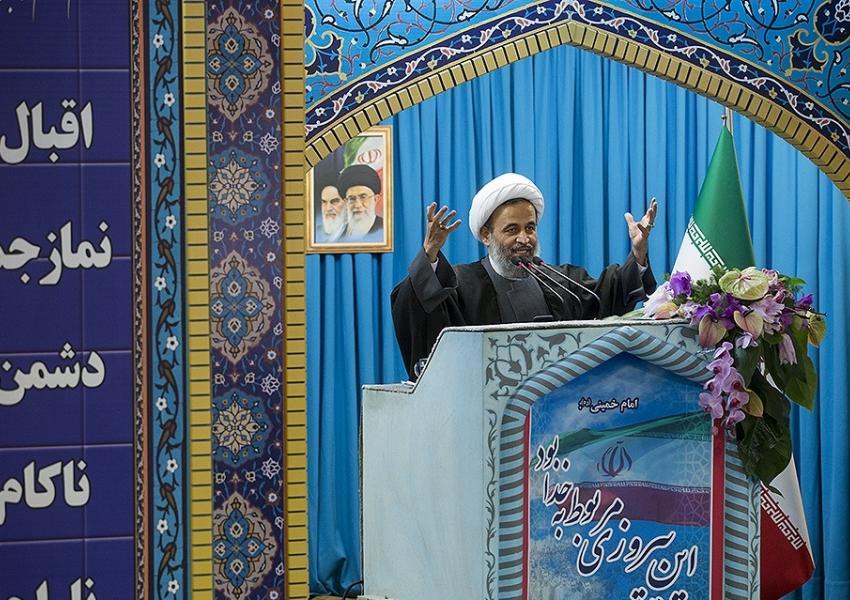
Tehran’s Friday Prayer Imam accuses Rouhani of Polarizing the country
Two days after President Rouhani’s speech about the future of the parliament, Alireza Panahian, a cleric close to the leader Khamenei, criticized Rouhani’s comments, calling them “polarizing”.
In his speech before the Friday’s sermon, Alireza Panahian, a hardliner cleric close to the leader of Iran, said about Rouhani’s comments: “It was strange for him to talk against polarization and at the same time, create a polarized atmosphere for the upcoming election by talking about the issue of women. He feeds the propagandists and uses the issue to polarize.”
“On the issue of women, there is no polarization, and this issue being brought up by the president is strange, however, he says these kinds of things a lot,” added Panahian.
In the Wednesday cabinet meeting, without directly mentioning the self-immolation of the female football fan who was sentenced to prison for entering the stadium, President Rouhani said: “Elections must cause more unity in the society, and for women, workers, and all the people who might feel that their rights are not being respected, the best way to get their rights is through the election.”
Due to recent labor protests across the country in recent years, some Islamic Republic officials had warned about the possibility of uprisings near the elections. Many labor rights activists have received heavy sentences from the courts.
In his presidential campaign, Rouhani had talked about the possibility of women entering stadiums, but his chief of staff, Mahmoud Vaezi, recently said that due to the “current atmosphere,” the presence of women in stadiums is “not expedient” at the moment.
Alireza Panahian also accused the government-owned media of “publishing false news” and claimed: “They publish false news to set the country on fire, and when the enemy’s media picks it up, they delete their report.”
Panahian also criticized some members of the parliament for “trying to Tunisiate Iran.”
Friday Prayer Imams are chosen by a council appointed by the supreme leader, and they are considered to be the leader's voices in every city.








